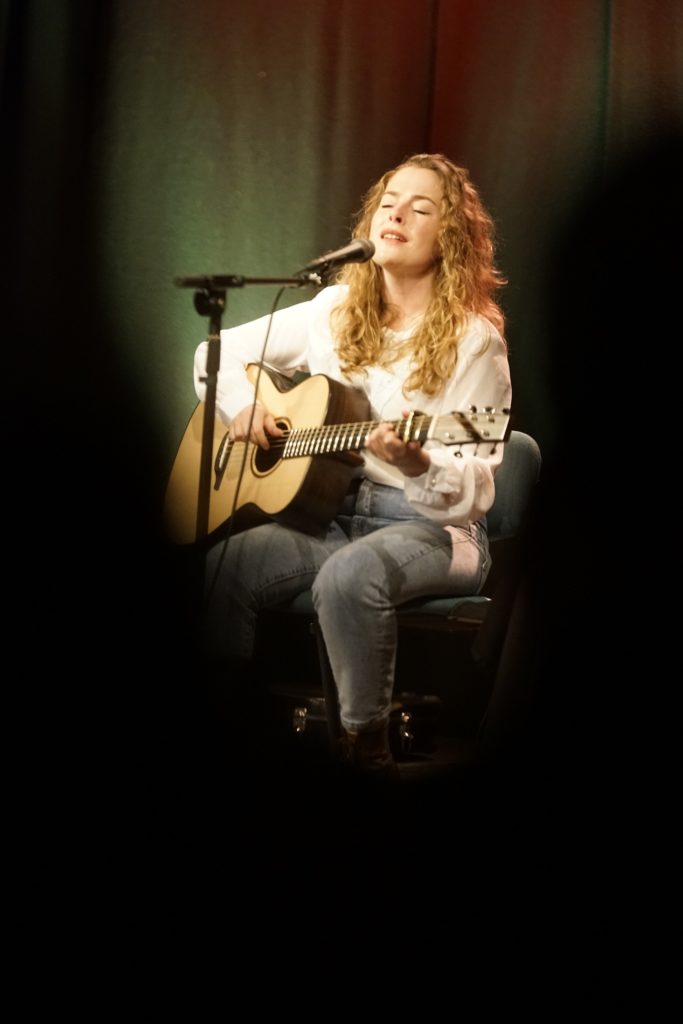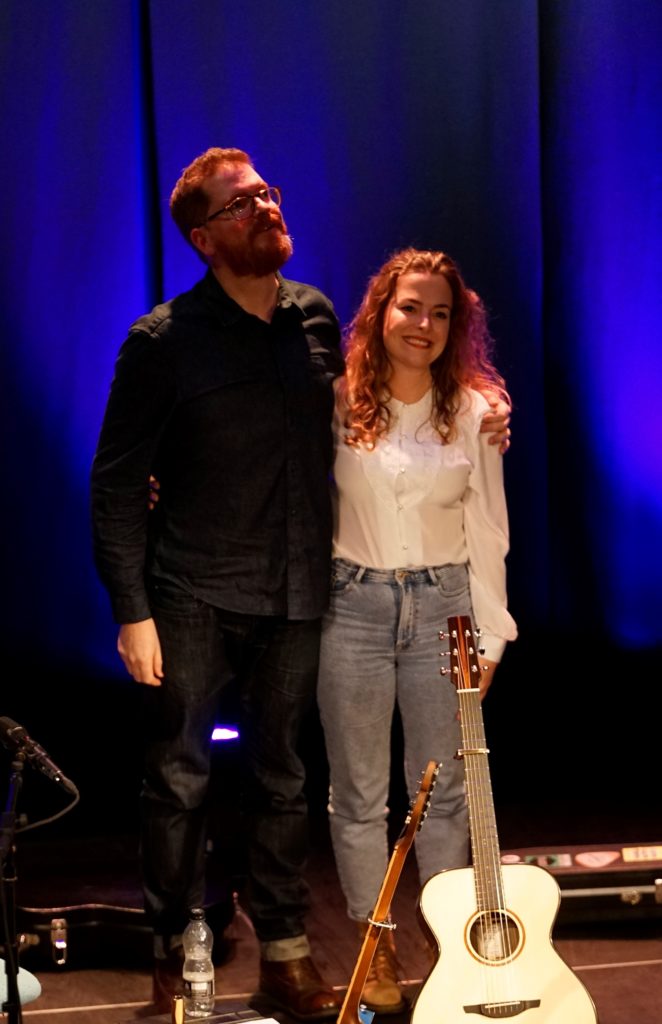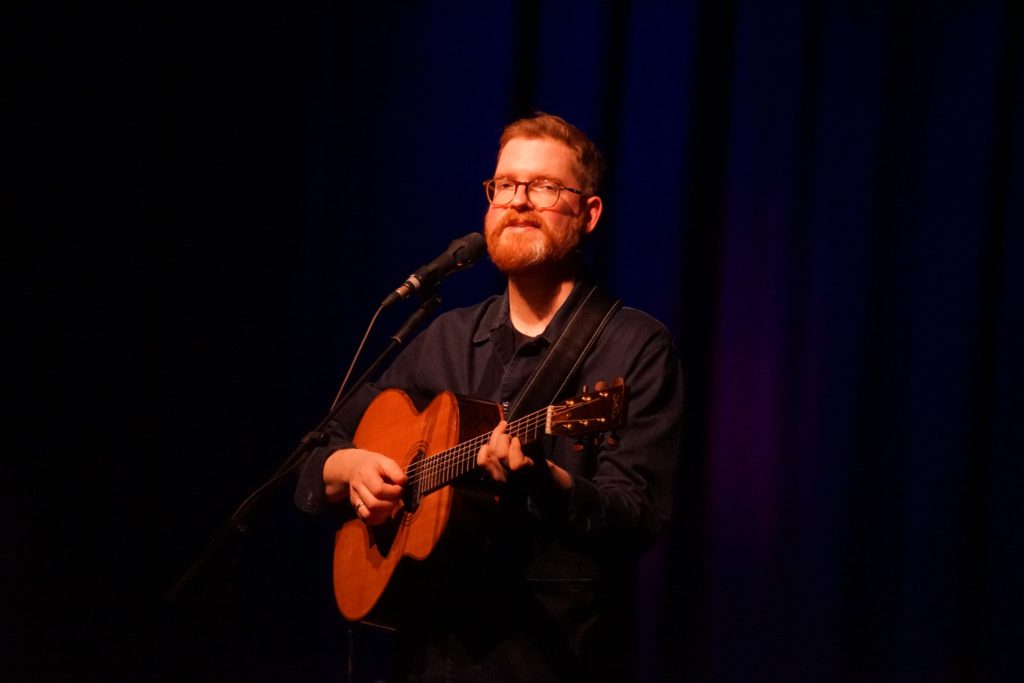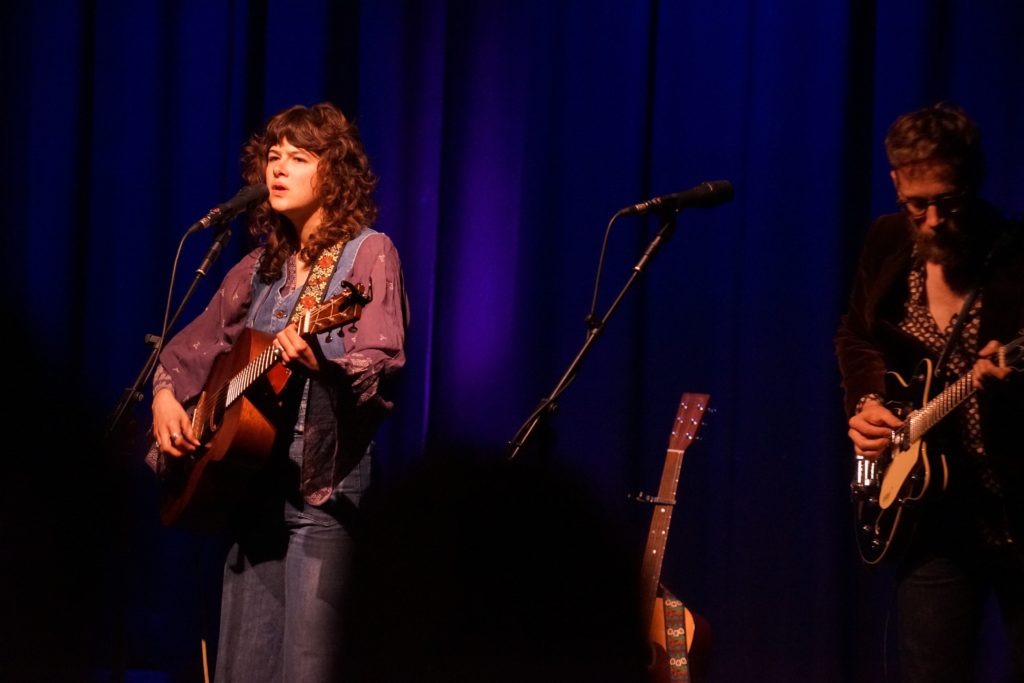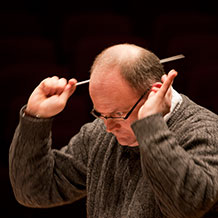
KATHERINE Priddy grew up in the first house on the left, the title of the first single from her second album, The Pendulum Swing, whose title came from a lyric in that song.
“Despite its soft and dreamy sound, this song provides the cornerstone around which the album and its themes orbit,” says the Birmingham contemporary roots singer-songwriter and finger-picking guitarist, who plays at The Crescent, York, on Wednesday night (15/5/2024).
“It’s inspired by the little old house where I grew up and all the memories captured within those four walls – both for me and for all the other inhabitants who’ve lived there over the centuries. It might just be another terraced cottage to passers-by, but to those who’ve called it home, it’s everything.
“There’s something magical about past inhabitants. That was something that intrigued me as a child, digging in the garden, finding old toy soldiers and bits of china: it’s a reminder you’re not the first to live there and you won’t be the last. It’s a comforting thought, how a house can look like any old terraced house outside but inside a scratch on the wall means everything.”
Explaining the album title, Katherine says: “It describes the urge to leave and the even stronger urge to return. Something I’ve felt a lot in recent few years as I’ve tried to carve out a corner for myself elsewhere, but always found myself wandering back, craving the comfort and nostalgia of the past.”
Released in February on Cooking Vinyl as the follow-up to 2021’s The Eternal Rocks Beneath, The Pendulum Swing is a step forward for Katherine. “My songs have matured since my debut, seeing as most of those were written in my childhood, but despite moving forward and feeling the need to do something different with this second release, I still can’t help but return to those fundamental, unchanging things at the root of it all: home, family, love,” she says.
“Overall, I wanted this song and the album to feel lived in, and this is captured in part by the ghostly atmospheres, mechanical clockwork sounds, creaking floorboards, indistinct whispers and old tape recordings of my family that are littered throughout. I want to invite the listener to come in, sit down and inhabit the album for a little while, and First House On The Left is right at the heart of that.”
Describing the rural village house, Katherine says: “It’s an old terraced house in Alvechurch, 11 miles from Birmingham, quite a few hundred years old with a lot of history. It’s where I grew up; I’ve moved out, moved back in again, moved out, then moved back in again with my parents over lockdown, with mixed feelings.
“When rapidly approaching 30, you feel you must move out, move on, but at the same it’s really hard to deny the pleasure of being back home with your parents.”
Katherine reflects on the itinerant nature of a singer-songwriter’s life. “Being a musician, it’s always about picking the most scenic route. I will find my home,” she says, having moved out again. “At the moment I’ve found a lovely little flat in Birmingham by the river.”
Will she write about it? “Who knows! Maybe I will. Probably I have another house song in me,” she says.

Katherine wrote her first album in her teens. “It dealt with mythology, which I was more interested in then. Now I’ve turned back to more fundamental things because they are there all the time and I’m trying to find myself. When everything else seems unstable, these things stay the same, and I wanted to capture that nostalgia, which is something I crave.”
Craving comfort in the past, Katherine says: “I’ve picked a fairly unstable career, which is very much about being in the moment, planning but not sure if things will come to fruition, but I feel very lucky to have a family that’s an unchanging bedrock and are always so supportive.
“Sometimes you just want to go back and feel like a kid again, and I think it’s fine that I feel grateful to have that feeling of nostalgia. It’s impossible not to want to still be back there and re-live those moments – and I can do that in song.”
She returned to the same producer, Simon J Weaver, who had recorded her first album at his Rebellious Jukebox studio in Birmingham, joined by guest musicians John Smith (lead guitar), Harry Fausing Smith (strings), Marcus Hamblett (brass and double bass), George Boomsma, from Northallerton (guitar and backing vocals), and Polly Virr (cello).
“This album feels like a step up in being more cinematic in places and taking me out of my comfort zone,” says Katherine. “I really like it on albums where you can hear things that take it from being a song to be more immersive, and that what’s we’ve done for The Pendulum Swing
“I wanted it to feel like you are entering a house, but also bookending the album with instrumentals that convey returning to the house and then leaving again at the end. It’s that urge to stay and that urge to leave that I’ve been doing battle with.
“Some of the songs are very personal to me, like when I’ve featured clips throughout of me and my dad talking from a tape that I found at my parents’ house – and I’ve squeezed my family into a cameo on the last track.
“I thought there’d be more resistance, but my dad loves his vinyl and a credit on an album is something he couldn’t resist, so it’s a family affair with my brother and parents on there.”
Katherine’s 14-date tour finds her expanding from a duo format to a trio with support act George Boomsma and Harry Fausing Smith joining her on stage. “It’s lovely to have Harry for this tour, capturing some of the soundscapes from the album, as well as integrating some of the samples into the set,” she says.
“It’s really emotive to have the strings. I’ve been getting goosebumps listening to these musicians adding their beautiful skills to songs that have been occupying my head for so long.”
Katherine Priddy plays The Crescent, York, on May 15, supported by George Boomsma, 7.30pm; The Live Room, Saltaire, May 16, 7.30pm. Both sold out. Box office for returns only: katherinepriddy.co.uk/
Katherine Priddy: the back story

First set foot on stage to play Dorothy in school play The Wizard Of Oz, aged nine.
Wrote first song at 14/15.
Love of language, literature and poetry rooted in English Literature studies at University of Sussex, Brighton. Favourite novel Wuthering Heights would later inspire her first album title: “I loved how Cathy described her love for Heathcliff as being ‘the eternal rock beneath’,” she says.
Folk luminary Richard Thompson chose her as “The Best Thing I’ve Heard All Year” in Mojo magazine on the strength of her 2018 EP, Wolf.
Received airplay on Guy Garvey, Gideon Coe, Tom Robinson, Cerys Matthews, Radcliffe & Maconie, Steve Lamacq and the late Janice Long’s radio shows.
2021 debut albumThe Eternal Rocks Beneath (Navigator Records) drew glowing reviews from the Observer, the Sun, Uncut, Songlines and Folk Radio UK with its songs of mythology, childhood and growing up. Charted at number one in Official UK Folk Chart and number five in Official UK Americana Chart, rounded off the year on Mojo’s Folk Albums of the Year list.
Played Cambridge Folk Festival, winning Christian Raphael Prize; Glastonbury, appearing on BBC Two’s coverage; Green Man; End Of The Road; Beautiful Days and BBC Proms.
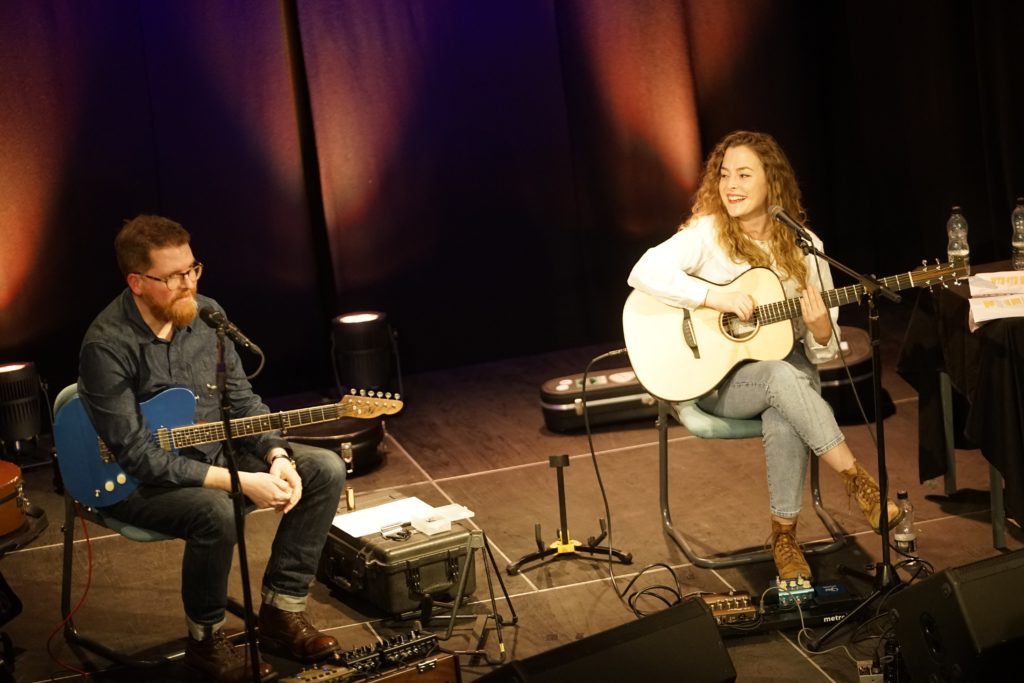
As well as headline tours, she has supported Richard Thompson, The Chieftains, Loudon Wainwright III and Vashti Bunyan.
In 2022, she played in Australia, including Port Fairy Folk Festival, plus showcase in Kansas City, USA, as part of Folk Alliance International.
In 2023, she recorded I Think They’re Leaving Me Behind for double album The Endless Coloured Ways – The Songs Of Nick Drake, on Chrysalis Records, featuring alongside Self Esteem, Aldous Harding, John Grant, Bombay Bicycle Club and more.
Supported Guy Garvey at The Roundhouse, London.
In February 2024, she released second album The Pendulum Swing on Cooking Vinyl.
Past shows around here: The Magpies Festival, Sutton Park, near York, August 2021; National Centre for Early Music, York, June 2022; Selby Town Hall, with John Smith, playing 14 songs together over 100 minutes, November 2022.
One last question
Do you consider herself to be a folk musician, Katherine?
“I THINK I’m just outside, with one foot in folk and one foot elsewhere, but what I appreciate about folk songs is that they tell stories.”


